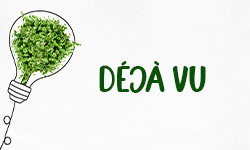
Definitions are intended to bring the meanings of various expressions, words, and phrases closer to people in a brief and concise manner. Many of them are often used more for their aesthetic appeal than for their true meaning. Therefore, this article aims to provide comprehensive insight into the term “déjà vu,” showing its roots, correct usage, and spelling along with example sentences.
Definition of “déjà vu”
“Déjà vu” is a noun derived from the French term meaning “already seen”. It is commonly used to describe a psychological phenomenon in which a person feels as though a situation has been experienced in the past, even when it has not actually occurred. Some theories suggest that a déjà vu occurs due to a mismatch or glitch in the brain’s processing systems, while others point to memory-based explanations or even past-life experiences. The phenomenon is common and occurs in a large proportion of the population.
Use of “déjà vu” in a sentence
In English, “déjà vu” is a noun used to describe a specific phenomenon wherein a situation feels eerily familiar, as though it has been experienced before. Since “déjà vu” is a French term, it is advisable to include the accent marks, particularly in formal writing.
How to spell “déjà vu” correctly
“Déjà vu” is often misspelled as “déjàvu”, “deja vu”, or “de ja vu”. This may be due to the foreign origin of the word, with it being a French term. The only correct way of spelling the French word is “déjà vu” with accent marks in formal writing.
- “déjà” – meaning “already”
- “vu” – meaning “seen”
Correct spelling
déjà vu
Wrong spelling
déjàvu
deja vu
de ja vu
Synonyms for “déjà vu”
It may be advantageous to substitute “déjà vu” with corresponding synonyms. By using synonyms, you can also avoid repetition in your academic work. Below you will find four synonyms for ‘déjà vu’ along with respective example sentences.
| Synonyms | Examples |
| Familiarity | When he walked into the old house, he was struck by a sense of déjà vu. |
| When he walked into the old house, he was struck by a sense of familiarity. | |
| Recollection | The melody gave her a strange sense of déjà vu, as if she'd heard it in a dream. |
| The melody gave her a strange sense of recollection, as if she'd heard it in a dream. | |
| Remembrance | The scent of the ocean brought on a powerful déjà vu. |
| The scent of the ocean brought on a powerful remembrance. | |
| Reminiscence | The conversation induced a feeling of déjà vu. |
| The conversation induced a feeling of reminiscence. |
FAQs
“Déjà vu” is a French expression that literally translates to “already seen” in English. It’s used to describe the feeling that you have experienced or seen something before, even when encountering it for the first time.
Unlike a memory or recollection, which relates to real past experiences, déjà vu is the sensation that something has been experienced before, even when it hasn’t. Déjà vu can feel like a memory but is typically a fleeting and sometimes unsettling feeling that doesn’t correspond to any actual previous experience.
Yes, the term “déjà vu” is used similarly in both English and French to describe the phenomenon of feeling like you’ve encountered a situation before. It’s a recognised psychological term in many languages and cultures, reflecting a shared human experience.
- ✓ 3D live preview of your individual configuration
- ✓ Free express delivery for every single purchase
- ✓ Top-notch bindings with customised embossing

